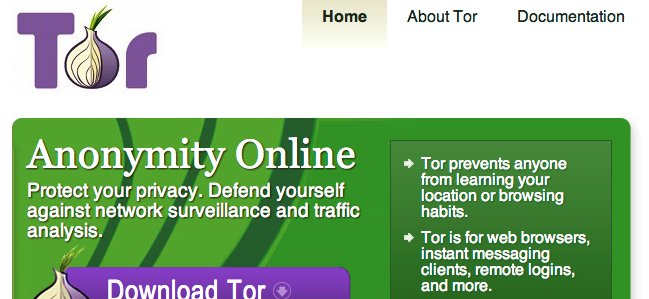Silk Road and Ending the Illusion of Invincibility
 Earlier this week, the notorious online black market Silk Road was seized by the FBI, it’s alleged operator, Ross Ulbricht, was arrested and funds in the site’s escrow accounts, an estimated $3.6 million worth of Bitcoin, was confiscated.
Earlier this week, the notorious online black market Silk Road was seized by the FBI, it’s alleged operator, Ross Ulbricht, was arrested and funds in the site’s escrow accounts, an estimated $3.6 million worth of Bitcoin, was confiscated.
To make matters worse for those who used the site, the FBI was able to obtain a full image of the server, which means that they likely have all of the data about transactions that took place on the service.
While this is certainly a huge success for the FBI and law enforcement, shutting down the largest and best-known public online black market, it doesn’t seem to impact copyright and copyright enforcement directly. After all, while Silk Road was certainly a notorious black market for drugs, guns and other illegal services/goods, it wasn’t a haven for piracy or infringing material.
However, Silk Road’s closure is still something of a game changer, it’s another milestone in the destruction of the illusion of invincibility online, a process that has been going on almost since the day the Internet was born.
The result is that, where once law enforcement on the Web seemed impossible and as if the Web was simply a “wild west” of sorts, now it’s coming to more closely resemble law enforcement in the physical world and that means both enforcers and law breakers need to rethink their approaches.
Going Wrong While Doing Everything Right
 On the surface, Silk Road appeared to be doing everything right. The site was only available via The Onion Router (TOR) network, which anonymizes all incoming and outgoing traffic by passing encrypted traffic through intermediaries, and handling payments only in Bitcoins, a form of virtual currency that emphasizes anonymity and is not connected with any government.
On the surface, Silk Road appeared to be doing everything right. The site was only available via The Onion Router (TOR) network, which anonymizes all incoming and outgoing traffic by passing encrypted traffic through intermediaries, and handling payments only in Bitcoins, a form of virtual currency that emphasizes anonymity and is not connected with any government.
Users were so comfortable with the protections that Silk Road provided that they openly bought and sold illegal goods on the site. The site was so popular that it had a sales revenue of more than 9.5 million Bitcoins, or well over $1 billion.
However, according to reports, a series of blunders by Ulbricht lead to his downfall. Those blunders included requesting technical help using an email address that revealed his real name, having packages shipped to his home and more.
This has led many who used the site to question their judgment and many are lamenting both the money that they have lost in their escrow accounts and the possibility of criminal action against them personally.
However, they likely could have taken a hint from the case of Freedom Hosting, a host that specialized in TOR-based websites that was seized by the FBI and shuttered over child pornography charges. That attack was also used to plant malware on the computers of suspected visitors to the site.
In short, though Tor is often thought to be one of the most secure ways to set up a site and access the Web anonymously, law enforcement has clearly been able to breach it, now on two major occasions in less than two months.
A Wild West No More
The image of the Internet as a wild west started when it was young. Many wondered if and how laws of the physical world would apply to a purely digital one. But it quickly became evident that virtual crime is committed by physical people using tangible servers and real networks.
Thus laws on the Internet have been enforced for some time. Whether it’s spam kings being arrested, child pornography rings being busted or arrests in online piracy.
No law breaker, it seems, is completely immune to prosecution or other legal action. No matter what technology is used to hide one’s activity, if there’s enough interest in catching the person, they will likely be caught. The bigger issue, instead, is that law enforcement has limited resources and they are have to spend those resources in the way that they feel will give them the greatest impact. The more difficult a site is to shutter or a person is to catch, the less likely they will be targeted.
In that regard, crime online is becoming more like crime in the physical world. The Internet is not a magical shield to make one untouchable, but a tool that can help both commit crimes and enforce the law.
The Effect on Copyright
When it comes to copyright and piracy issues on the Web, there is a lot of talk about how the Internet has been a game-changer. While it’s true that it’s made piracy easier and more widespread, it’s also made piracy easier to track, understand and, in some cases, stop (even if the stoppage is only temporary).
While online piracy is serious because of its sheer quantity, it’s time to stop thinking about it as a completely different act from physical piracy. Digital piracy is still committed by human beings using physical machines. The mere fact that the content is digital doesn’t change the nature of the act.
This means a lot of the lessons gleaned from dealing with physical piracy can also be used. For example, attacking on the supply side is generally better than the demand side, availability curbs the desire to pirate (thought not eliminate it) and that, no matter how effective anti-piracy efforts are, it’s not practical to expect that there will ever be a complete elimination of it.
So while online piracy is different from its bricks and mortar counterpart, it’s also very similar to it in many ways and, as the closure of Silk Road shows, those similarities are often much more important.
Bottom Line
By now, it should be clear that the Internet is not a magical place that’s free of law enforcement and there is no technology that can provide 100% security against legal action. If you’re engaged in illegal activity online, whether or not you’re caught is more a matter of the value of your crime versus the effort required to bring you to justice.
In that regard, online activity is no different than real-world activity. The Internet has truly been a double-edged sword for lawbreakers. It’s both a tool to hide crime and make it easier but also a tool for tracking down criminals. For every lawbreaker successfully hiding behind a VPN, there’s another getting caught because of their postings on Twitter or Facebook.
The Internet is a tool and it’s a tool for good and ill. But it’s important to remember that it doesn’t make one invulnerable to the law, no matter how much they try to hide. While some might seem to be untouchable, as Freedom Hosting and Silk Road show, that since of invulnerability is often short lived.
Want to Reuse or Republish this Content?
If you want to feature this article in your site, classroom or elsewhere, just let us know! We usually grant permission within 24 hours.
